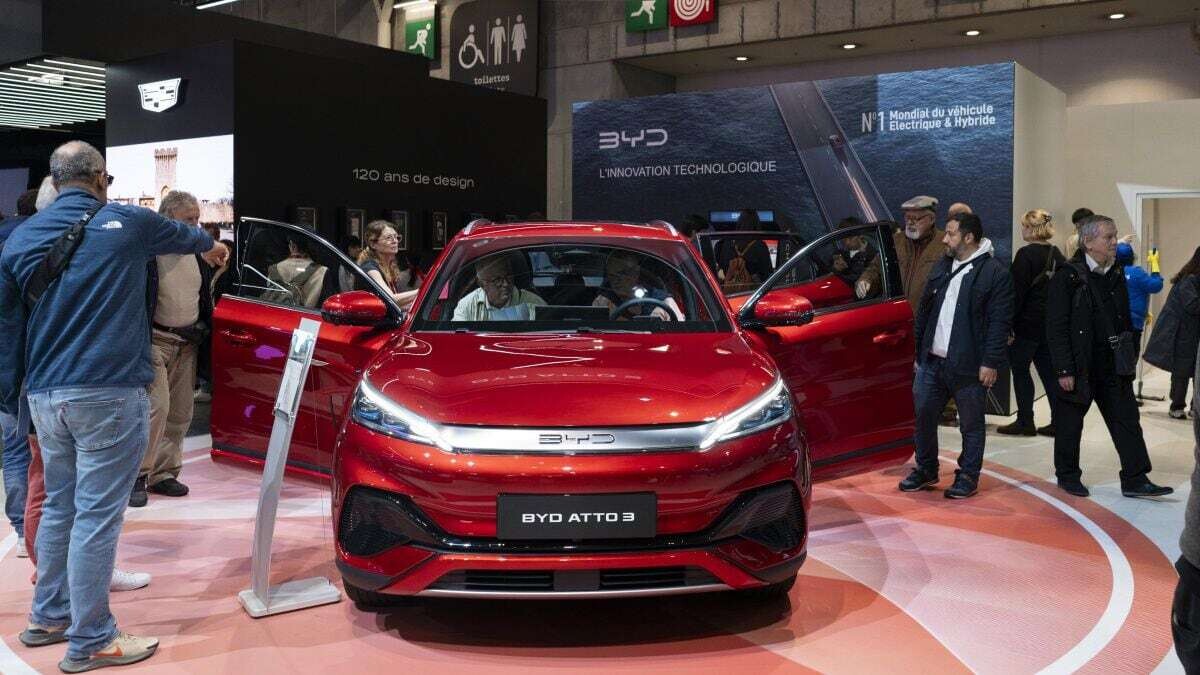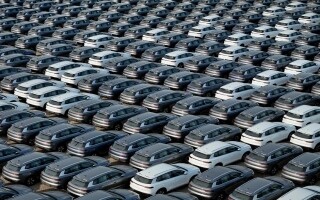
The last three months of the year are usually high shopping season, and in addition to subsidies, central government agencies have been ordered to promote purchases of electric vehicles. BYD is also on track to meet its revised annual sales target of 4 million vehicles, having sold around 2.74 million vehicles by September. These local sales have helped BYD shield itself from foreign resistance to the expansion of Chinese automakers.
The European Union imposed higher tariffs this week, reaching up to 45 percent, on electric vehicles from China, increasing trade tensions between the world's major exporting powers. BYD Co. achieved another victory over Tesla Inc. this Wednesday. The Chinese company reported quarterly revenues that surpassed Elon Musk's automaker for the first time since both faced off in global electric vehicle sales.
Revenues of China's best-selling automaker rose 24 percent to 201.1 billion yuan ($28.2 billion) during the three months ended in September, falling short of estimates but exceeding Tesla's $25.2 billion sales during the same period.
BYD's net profit rose 11.5 percent to a record 11.6 billion yuan, surpassing estimates, as BYD sold an unprecedented figure of 1.12 million electric and plug-in hybrid vehicles and generated a gross margin of 21.9 percent. However, its profits are still overshadowed by the $2.2 billion that Tesla earned.
BYD and Tesla have emerged as major threats to traditional automakers, particularly as Volkswagen AG, Ford Motor Co., Stellantis NV, and General Motors Co. struggle to achieve profitability with their transitions to electric vehicles. As consumer demand for fully electric vehicles slows down, BYD has become more isolated than Tesla due to its strong line of hybrid vehicles.
Another key aspect of BYD's advantage is its vertically integrated supply chain: making more parts in-house gives it a cost and scale advantage to produce cars at a lower cost. Meanwhile, Tesla is dealing with a limited and increasingly outdated lineup of electric vehicles and has been focusing more on ramping up production of its Cybertruck and expanding the use of its partial automation system marketed as Full Self-Driving.
BYD has also benefited from recovering domestic demand in China, driven by improved subsidies from national and local governments aimed at enticing consumers to swap their gasoline cars for electric and hybrid vehicles. BYD does not sell passenger cars in the United States due to tariffs. Earnings outlook for BYD in the last quarter appears even stronger as it benefits from its leading sales position in China, the world's largest automotive market. Tesla's shares have risen 4.4 percent this year. Citibank Inc. estimates that BYD could sell up to 500,000 units per month by November. BYD shares listed in Hong Kong closed down 0.7 percent on Wednesday, reducing their year-to-date gain to 38 percent.











